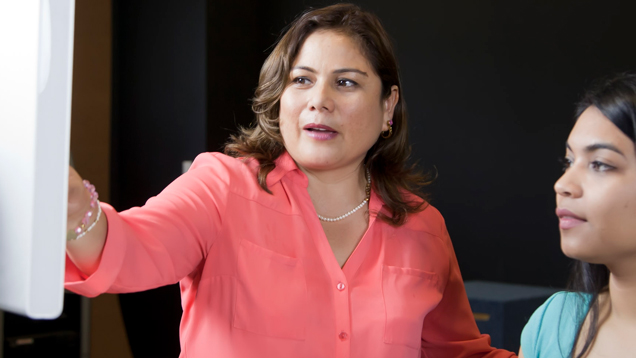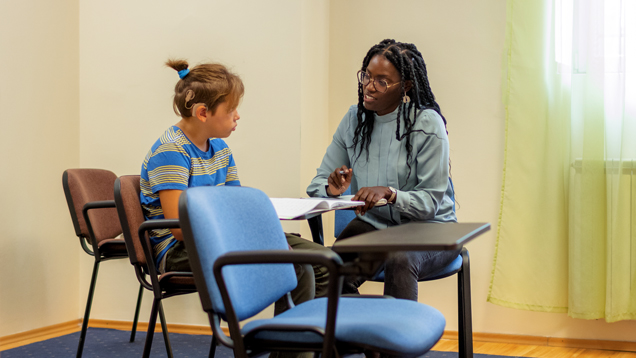Open New Doors for Yourself with a Graduate Degree
Hone your expertise in your field and go further in your career with a master's degree from Nova Southeastern University.
With flexible courses, a research-based curriculum, and practical experience, you'll gain the skills and knowledge to qualify for higher-level jobs in education, human services, or criminal justice.
Fit your learning into your own schedule with NSU’s flexible learning experiences that include online and in-person courses.
Why Earn Your Master's Degree at NSU?
Education and Leadership Master’s Degrees
Sharpen your academic or corporate career expertise with the curriculum flexibility, support, and personalized coaching that makes NSU unique.
Master of Science in Leadership
Dive deep into your innate leadership abilities and learn how to apply them to achieve organizational team success. Gain the skills and experience needed to shape and motivate others to reach corporate, public sector, nonprofit, or higher education goals.
With an M.S. in Leadership, build a rewarding career as a(n):
- HR Manager and Director
- Sales Manager
- Health Care Administrator
- Management Consultant
Courses are available online.


Whether you’re an educator or administrator, deepen your knowledge with a specialized
degree in your area of focus.
Offered online.

Elevate your leadership skills through practical application and understand the social,
political, and economic influences of education.
Offered online.

What Can You Do with a Master's Degree in Education?
Make an impact inside and outside the classroom with a career in:
- Educational Administration
- Curriculum Design
- Instructional Technology
- Educational Consulting
- School Counseling
M.S. in Criminal Justice
Find your perfect fit with 3 different concentrations to choose from and serve your community by developing a specialized expertise.
Concentrations include:
- Behavioral Science
- Child Protection and Juvenile Justice
- Investigative Forensic Technology
With this program, you’ll learn the ins and outs of the criminal justice system and be prepared to better your community.
Courses are offered online.


What Can You Do with a Master's Degree in Criminal Justice?
Create positive change in your community with a career as a:
- Police Officer
- State Trooper
- Park Ranger
- Detective
- FBI Special Agent
- Correctional Counselor
Human Services Master’s Degrees

Master of Human Services in Child Protection
Develop the critical knowledge, values, and skills necessary to respond effectively to complex problems confronting children and families. Choose from a variety of specializations and become an expert in your field.
Courses are offered online.

Help those with developmental disabilities reach their full potential by addressing
relevant issues at community-based and government agencies.
Offered online.
What Can You Do with a Master's Degree in Human Services?
Prepare for a rewarding career in human services and related fields, including child protection, developmental disabilities, and human services administration.
With this degree, you can become a:
- Behavior Analyst
- Case Manager
- Child Advocate
- Child Life Specialist
- Community Outreach Worker
- Family Support Worker
- Public Policy Consultant


Work with the Autism Institute
Donate your time and efforts by working with the Autism Institute and make a positive impact in your community. The Autism Institute assists families with members on the autism spectrum through early intervention programs, public and private school options, college support, and support for families. Programs include:
- Kapila Family Foundation Starting Right Program
- Baudhuin Preschool
- The Academy
- Access Plus
Accreditation
The Abraham S. Fischler College of Education and School of Criminal Justice (FCE & SCJ) is accredited by the Council for the Accreditation of Educator Preparation (CAEP).


